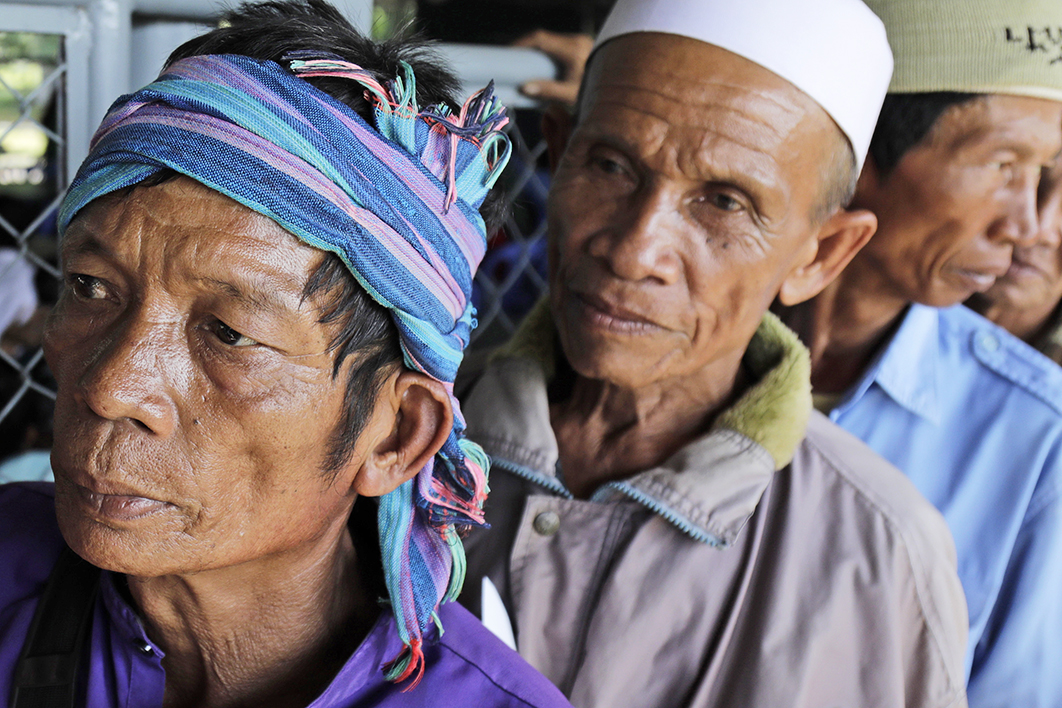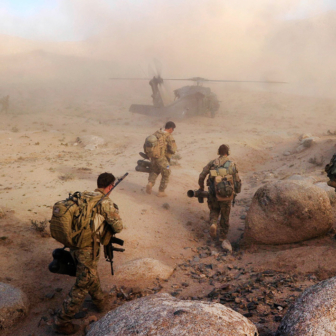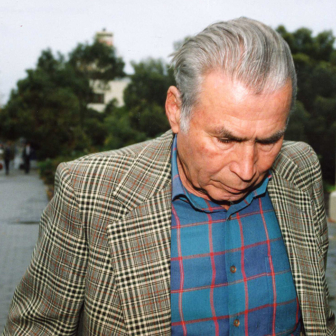The historic Cambodian genocide decision handed down on Friday by the Khmer Rouge Tribunal brought vindication and a renewed recognition of the immense suffering of the Cambodian people. Two of the Khmer Rouge’s most senior leaders, Nuon Chea, second-in-command to leader Pol Pot, and Khieu Samphan, the former head of state, were held responsible.
But the verdict has been met with mixed feelings in Phnom Penh. In the face of grief and loss on such a scale, what purpose is served by this clinical legal judgement?
For the better part of two years, I spent almost every day watching the proceedings at the Khmer Rouge Tribunal. Always mediated by headphones, through which the Khmer testimony was translated into English, my days were full of harrowing testimony. The words were underscored by a persistent, tinny thrum. Some mornings I’d wake up with it already ringing in my ears. But cutting through the noise were the stories, dozens of them forever etched in my mind.
One survivor told the court how he was thrown into a mass grave. He lay there, bleeding and terrified, as the bodies built up around him, playing dead until he could clamber out. Another was told his “wounded flesh” had been “cut off,” freeing him for revolutionary duties, after his Vietnamese wife was taken away and killed, and his children smashed against a tree until they died. Another recalled the chilling moment when she saw someone else wearing her sister’s clothes and realised she was dead. Another was forced to abort her child.
At first, it was hard to believe much of what I was hearing. But as the trials continued, the details grew familiar and almost numbing. I heard the phrase “they killed my whole family” so many times that it was no longer an “angle.” Instead my ears pricked up when a particular cruelty — a forced abortion, a gall bladder cut out and hung as a trophy — stood out from the loss experienced by so many.
For the Khmer Rouge, the killing of enemies had to be comprehensive. They justified killing children with the mantra “when you dig up the grass, you must remove even the roots.” In all, at least 1.7 million people are believed to have died.
In heart-wrenching testimonies, picked over in minute detail to find a legal truth long after the fact, the horror was intermingled with the mundane. You may have survived unspeakable crimes, but can you recall a prison floorplan forty years later?
Friday’s verdict found that genocide was committed against both the Vietnamese and the Cham. The Cham were forced to abandon their customs and prayers — made to eat pork and watch as their Qur’ans were burned — and killed in large numbers. The verdict “has both symbolic and historical meaning for Cambodian people,” says Farina So, a Cham Muslim academic who collected oral histories of the Cham people. “It was something we have been waiting to hear for so long.”
Although the court found that genocide had occurred, it concluded that Chea and Samphan did not have “genocidal intent” towards the Cham. Samphan was not convicted of genocide of the Cham, though Chea was held to have superior responsibility because he had the power to stop it.
So’s research uncovered attempts to wipe out the Cham language. One woman told her how, when the Khmer Rouge came to power, her neighbours pretended they no longer knew her. Cham was her native tongue, and “she could not hold herself from speaking that out.” When she commented on a leaking roof, the Khmer Rouge thought she was referring to secrets and viewed it as a threat to the revolution. She was punished.
Rightly, the genocide charge has dominated media coverage of the trial and the verdict. But I was also struck by another of the key findings, on forced marriage, a policy pursued by the Khmer Rouge in a bid to increase Cambodia’s population.
The authorities matched couples in a climate of fear, devoid of consent, and they were then married in groups. The pressure to consummate the marriages led to widespread rape. It was a crime perpetrated by the state, with both men and women as victims.
Theresa de Langis, who led the Cambodian Women’s Oral History Project, says that the verdict put to rest the long-running myth that sexual violence was not a part of the Khmer Rouge’s mass atrocities. “The reason, for me, why those testimonials were impactful is because this had been shrouded in silence for so long.”
She says that people knew forced marriages were taking place, “but no one considered it a crime, no one ever talked about really just how horrific it was. So having those personal stories finally get voice, for me, I think has really changed the way we see the Khmer Rouge genocide.” The women who came forward with their testimonies, she adds, have changed legal history.
One of them, Chea Dieb, implicated Khieu Samphan in the regime’s policy of forced marriage. She refused marriage twice, but on the third occasion, fearing she’d be punished, she married a stranger. He didn’t force her to have sex, but officials were watching closely.
“I know they were monitoring us, as I heard them go up and down the stairs,” she said after Friday’s decision. “They told me that I’ve got to love my husband as much as I can.” They had four children and are still married today. “I didn’t want to live with him, but my parents said, ‘How can you kick him out, as he’s a very good person and he has a good heart?’ He never hurts me, so we’re still together.”
One story that will stay with me is that of Sou Sotheavy, a woman with a singular experience. Sotheavy is transgender, but the Khmer Rouge forced her to live as a man. She was forced to marry a woman and father a child, an experience that felt wholly alien to her.
Other transgender people she knew drank poison to avoid the Khmer Rouge’s control. Sotheavy lost seventeen members of her family; now she is growing old and sick, and has no one to look after her. “I have suffered so, more than I can describe,” she says. She feels that the verdict didn’t go into sufficient detail about the suffering of victims, and believes that giving life sentences to elderly men was redundant. “It does not help me recover from trauma,” she says. “Instead it opens my wounds and hurts more.”
As Farina So points out, the law has its limits. Nuon Chea and Khieu Samphan have denied wrongdoing and refused to apologise, a sore point for many survivors of the brutal regime. Those who personally committed the crimes — those who raped, murdered and tortured — will never be punished and continue to live alongside their victims.
“It’s not ended yet, something still needs to be further pursued,” says Farina. “We might need another form of justice, similar to a truth commission, in order for people to feel a sense of full closure.”
While the genocide took place in Cambodia, the world looked away. The United Nations continued to recognise the Khmer Rouge as the legitimate government even after it had been ousted by a communist Vietnamese-backed fighting force.
While the often beleaguered court will eventually pack up, leaving a trove of documents and evidence, and while international journalists move on to the next atrocity, that unthinkable past will continue to reverberate with the Cambodian people — not a tinny underscore ringing in their ears, but a ceaseless echo. •
Yon Sineat contributed additional reporting from Cambodia.




